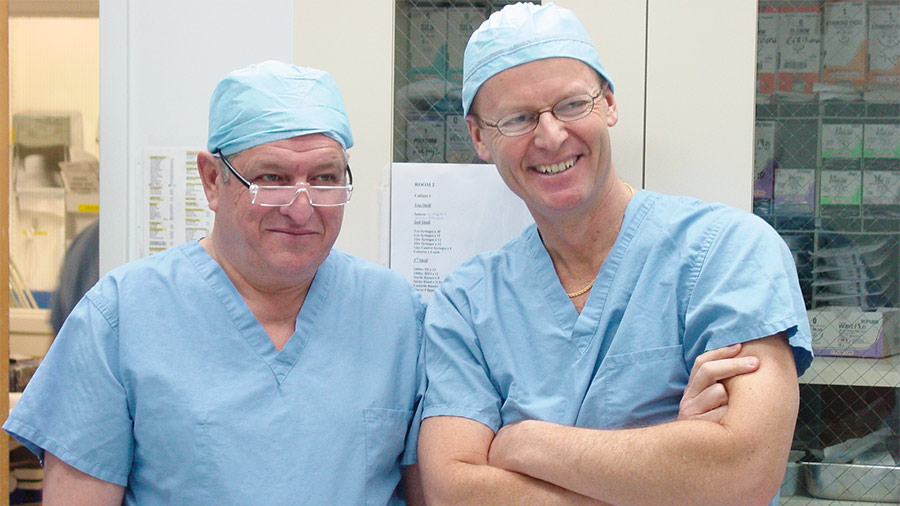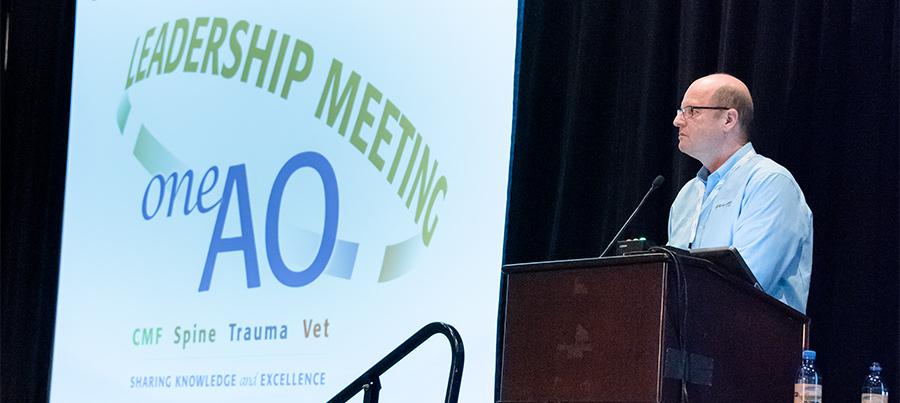End of an era: Steve Schwartz’s legacy
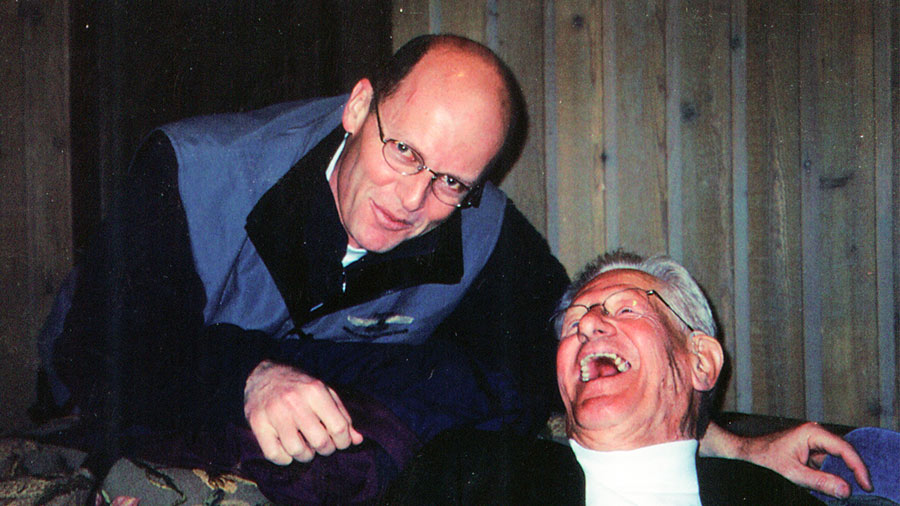
Above, Steve Schwartz shares a laugh with AO founder Martin Allgöwer in Sun Valley, Idaho, 2002.
Below, Steve Schwartz shares some reflections on his time as part of the AO North America leadership. Listen to the full podcast or read the text transcription beneath it.
Joshua Okumura: Steve, it's great to sit down with you today. I just want to ask you a few questions about your upcoming retirement and your career at AO North America. The first question we have is: how do you feel about your retirement and what does it mean to you to leave an organization that's been in your life for over 40 years?
Steve Schwartz: You know, after 40 years of work, that really hasn't been work, but that's been more of an adventure and a true joy. I've come to a point where I realize it's time. It's time in terms of my own personal life. It's time in terms of the leadership needs of AO North America. And it just seems like the right time for me in the leadership role of the AO North America organization to bring in somebody else.
Let somebody replace me who has the competencies and the passion and all that goes with leading this organization into the future. That's what I've been thinking about for some time and finally decided that the time had come now.
Okumura: What are your plans for retirement?
Schwartz: Somebody once told me, you can't retire from life. I've always felt that you should live your life with a purpose. And I don't think you're going to find me every day finding a new book to read or finding a new fishing place or going to a new golf course or whatever, new places to hike. Although all those things are kind of things on the docket.
I still want to stay somewhat with a purpose that goes with having a job, so to speak. And a lot of that will be working within the medical philanthropy world. I sit on several boards that are philanthropic organizations or humanitarian organizations. I'm going to continue to do that. And then who knows? You know, I may do a little bit of consulting.
I've always enjoyed working with the surgeon community and even those communities that go outside of the AO North America scheme. The other thing is that I have kind of an open agenda for my retirement, and I know that may sound like poor planning but I really just want to see what the world presents to me as I enter into this new phase.
Okumura: Awesome. So obviously you've been here for 40 years. You've experienced a lot. You've been through a lot. What are some things that you're really proud of, some achievements that you like to share with the community?
Schwartz: I'm really amazed and impressed by what I've seen in my 40 years of work with the elite in some way, shape or form. When I worked for Synthes back in the day, fracture fixation was regarded as something that was like an ugly stepchild and only to be non-operatively treated. If you operated, it was considered a grievous sin.
And to watch what was the state of the art at that time move to a whole different standard based upon the AO Foundation and the surgeons associated with us who really pushed for this type of clinical approach to fractures. To watch that become a stepchild to becoming state of the art, it's really hard to describe to anybody who hasn't been through it.
I can tell you that, over the period of the early eighties, even into the nineties a little bit, I continued to kind of shake my head in amazement. So what am I proud of? I think I'm proud of being a part of that in some small way.
I'm proud of helping to lead Synthes through a lot of change. I had various sales and leadership roles. I'm proud of many, many different things with that organization and I am really proud of the last seven years where I've been leading North America.
I couldn't ask for a better team to work with and it's been a true pleasure. I've enjoyed, in those years, being able to watch the organization adapt and work very closely and productively with a really great group of volunteer surgeons.
Okumura: Continuing with that, obviously you've had a lot of achievements, but were there any times that you really felt discouraged or disappointed or challenged? And if so, how did you manage to overcome?
Schwartz: You know, the biggest challenge is probably the recent challenge that we faced in trying to deal with this incredible pandemic. I guess one could find other things to be challenged by, but I can't think of a bigger challenge than the pandemic and the affect that it's had on all of clinical practice, including the areas that AO North America serves.
The way that we as an organization were able to, I guess the word is pivot. That's probably used very frequently, but I think that term applies to being able to turn on a dime and convert this organization into a digital organization. For me, I'm incredibly proud of that. But I also realized that we're right about at the far end of my spectrum of knowledge on this.
And I feel better having someone who's worked in that environment lead us to the next step and challenge our team to be even better at responding to the digital needs of the marketplace and the digital needs of our organization. So quick answer is: for sure, the COVID pandemic and the step to digitization, those have been the two biggest challenges that I've faced in my career, albeit recent challenges.
Okumura: Looking at the new leadership coming in, from your perspective, what do you feel like the future of this organization looks like and what would you like it to look like?
Schwartz: I think any new leader will look upon what has been done in the past so that we can build upon that. And we're a very robust organization. I think North America is robust in terms of the incredible commitment that we get from surgeon volunteers who spend hours and hours helping to provide the state of the art best education and best support that our network deserves and expects.
I think that for a new replacement for me, that's probably priority one—to appreciate the history and culture. Appreciate it, but also realize that we have a lot to do going forward. And that we are in a “competitive marketplace.” I hate to use that term, but it's probably appropriate. That marketplace is expecting us to be competitive, in terms of our timeliness, our accuracy, our product placements, the different types of products that we provide, digital and otherwise.
And I think it's really important that, as we go forward, it's kind of like we stand on the shoulders of those who got us here, but we continue to reach for new opportunities and see what the future has in store for us.
One other thing about the future that I think is really important, and we've had some of this in the past: I'd like to see us build on our relationship with DePuy Synthes. Our new leader will really need to make sure that we have a good relationship with DuPuy Synthes on many levels, and also, of course, with the AO Foundation.
But the DePuy Synthes relationship, for us here in North America, is really important.
Okumura: Going off of that, what are some wisdoms, or tips, or tricks and lessons that you've learned that you would like to share with the community?
Schwartz: The most important thing I've learned over the past decades is to listen. Listen to the surgeons, listen to the faculty, listen to the participants, listen to the employees, listen to the authorities. Listen, listen, listen, and then be prepared to act.
One of the things that has been a big challenge for AO North America is we're very good at having meetings about things; our actions sometimes get caught in the quicksand of politics and egos and other unknowns that surface at a time when we try to get things done.
Another point that I think is really important, as far as little insights, is to get out and meet the surgeons, to find yourself in their institutions, watch how they work, watch how they operate, and, whenever possible, attend our events and get a sense of what's actually happening—events on the web and events in person.
Make sure that you get out and meet the people from the Foundation, get to know them personally, and of course, meet the people from DuPuy Synthes and get to know them personally.
Okumura: What's one of your favorite stories from your time at the AO North America? An experience with a surgeon, an experience with a staff member.
Schwartz: I'd have to ponder that for a second. I have a couple of “favorite stories,” both of which involve AO historic mentors, if you will. And historic leaders. The first story that I can think of that comes to mind immediately is many, many years ago at an AO course in Broadmoor, Colorado Springs. It was in 1983 or 84.
I'm walking along a sidewalk to go in between two buildings where the courses were held and there was like a grassy area. And there were these four guys all lying on lounge chairs enjoying the sun, kind of having their moment of reflection. And it turns out each of them was one of the four founders of the AO: Müller, Willenegger, Schneider, and Allgöwer were all out there in their splendor, lying there.
And I'm stunned. I'm thinking, here we have the fathers of the whole thing and what do you say? What do you do? Or do you just keep walking? So of course, I just kept walking. But it's a memory that I'll treasure for a long time.
Another one was—when I had a chance to—I always enjoyed spending time with Howard Rosen. And Howard Rosen was an iconic figure, one of the first-generation AO teachers in North America, worked in New York City at a hospital for joint diseases. And Howard always had a way of being very professorial, incredibly nice, and very knowledgeable—and a great teacher. As you probably know, there's a teaching award named after him, and appropriately so.
Howard used to always come up to me and call me “Steve, my boy.” I guess that was a term of endearment. We were talking one day about total joints or something like that, hardware in the patients. And he said, “Steve, my boy, whatever you do, don't let them put any kind of total joint or anything into your body until you absolutely need it.” And he's giving me all these little insights about how to be mindful of what is out there technologically versus what your body needs medically.
Those come to mind. There are so many. I kind of drown in it. You know, there's events with my friends and my colleagues, events with Synthes where we were doing all kinds of fun things in the operating room. And I mean that in a good way. I was able to help somebody do a tibial nailing in a case by using a laser pointer while the rest of the group had gone off on a tour that was being conducted by the executives of the hospital.
Little things like that all scattered all over the place gives me great pride, great memories, and really feel good about the experience.
Okumura: One of the things that you're really big on is remembering where we came from. What would you say if you had to describe the AO legacy in a few short sentences? What would you describe that as?
Schwartz: Excellence in patient care using proven and documented principles and techniques. Exclamation point on that. And then, a corollary to that is: make sure you learn from the best. And by doing that, I mean going to a course or doing a fellowship or something like that, where you get that firsthand, first-person knowledge.
That’s what the AO is about. And that's how people thrive within the AO. Don't settle for anything other than a perfect result and make sure that you're committed to the total care of the patient.
Okumura: What was your favorite part about serving as the executive director for AO North America?
Schwartz: My favorite part about serving as executive director for AO North America, without a doubt, is the people and the staff. The staff here is just astonishing with how well they've adapted to it. The crazy new world of post-COVID and embedded in and digital.
Words escape me as far as how great these people are. They work so hard. They're so passionate about what they do. They're eager to learn. They're eager to exceed all expectations and to do an excellent job. My cup runneth over. I don't know what else I can say.
And then a second part of that is, without a doubt, the surgeons that I've met during my career with AO North America. These people—this is not their day job. These are incredible people who I feel we are privileged and fortunate and lucky to have working as volunteers for us.
It's a thankless job until you get into that moment where you're actually teaching and using resources to help people learn how to do it right. And our faculty and the membership of North America are remarkable at that.
I think the thing about the staff and the faculty and everybody else, it goes throughout the world. I've been able to meet people from all over the world. It's like a connective network of people that all share the same commitment, the same bond, the same fellowship, the same values.
Whether you're in Asia or North America or Europe, everybody is nice—they're cordial. They share their commitment to excellence and their commitment to teaching people how to be better surgeons using AO techniques.
Okumura: If you had to describe the impact you've had on AO North America in a couple of sentences, what would that be?
Schwartz: I assess my impact on this organization, and I realize that I don't do much. It's the team that does the does all the work, and it's the surgeons that do all the work. So my impact will be based upon the work that those people do. All I've tried to do is create an environment for success. I believe in letting people do their job and not micromanaging.
I believe in recognizing people when they succeed and have really great feedback or great experience. That's something I believe in—being nice to people, you know, fill your heart with kindness. That's something that I tell people to do as much as I can. I think that's my legacy.
Okumura: Wrapping up here, what last message would you like to give the next leadership and the rest of the AO North America team?
Schwartz: To the North America team and to Sharon Kneebone, my successor. All I can say is this is an incredible organization, and the people are unlike anybody else that I've met. The mission of the organization is unique.
My parting thoughts as I leave North America and the position of executive director is one of respect for what this organization has become. Treat it with that dignity and respect that comes out of the thoughtful, careful, passionate work that was done 42 years ago when I first saw it.
Don't let that little ember, that glowing nugget of what the AO stands for, don't let that ever dwindle, but give it more oxygen. Allow this organization to achieve even more potential that we don't even know what it is yet. Give us the opportunity to find that next level that we can exceed at.
I continue to leave this organization with a very proud feeling about the people and all that they do, and all the people involved. So to all of them, I say keep it going, make it better, and treat each other and everybody around you with kindness and respect.
Okumura: Thanks to you for your time and thanks for everything you've done for this organization over the past 40 years. I know I speak for everyone and say we wish you a happy retirement and that we're very excited for your next steps. We're very excited to see how the way you shaped the organization, your successes, is going to change us in the future.
Related pages
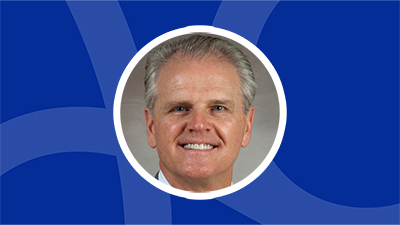
M. L. Chip Routt, Jr. elected as AO North America President-Elect
AO NA Board of Directors Chair James Stannard, MD introduces Dr. Routt and his goals for the organization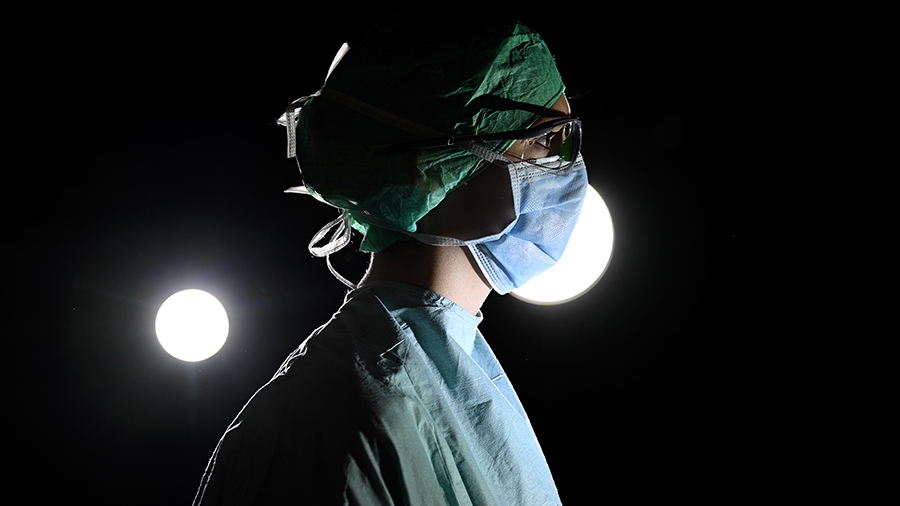
About us
A unique community with rich history, credibility, and passion for innovation, we provide lifelong learning opportunities for surgeons in North America.

